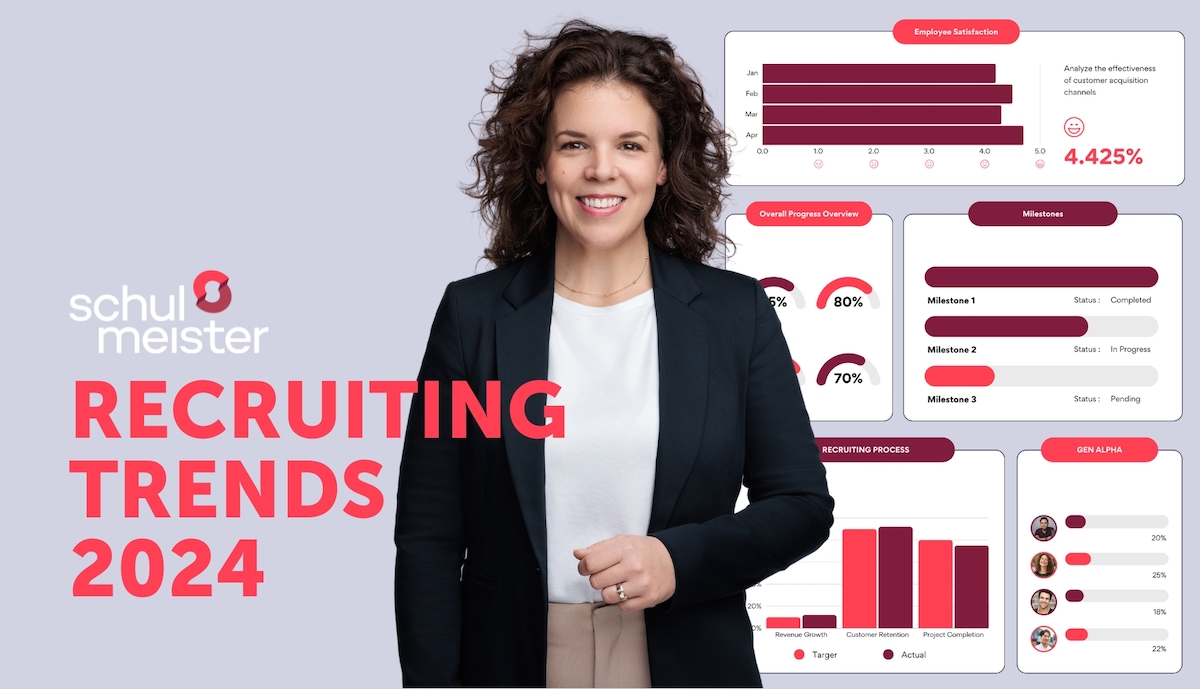What is candidate experience?
The candidate experience encompasses all points of contact that an applicant has with a potential employer. It covers the entire recruiting process, from the job advertisement and initial interviews to communication, the final hiring decision and onboarding. Each phase offers the opportunity to create a positive experience that convinces and retains the candidate.
The impact of the candidate experience
Studies show that a positive candidate experience has a significant impact on the acceptance or rejection of job offers. According to a study conducted by metaHR, 85% of applicants stated that their decision to accept an offer was strongly influenced by their experience during the application process, especially during the job interview. Another study by the IBM Smarter Workforce Institute found that applicants who do not receive a job offer are 80% more likely to reapply if they had a positive experience during the application process and thus gained a good impression of the hiring company.
Moreover, the candidate experience also influences the employer brand. A survey conducted by CareerBuilder shows that one in four applicants take the reputation of the company, and corporate benefits into account when making a job decision. A negative employer review even discourages one out of two candidates from applying. Therefore, a negative experience can affect not only the specific recruitment process, but the overall talent acquisition and retention of an organisation.
Checklist: 5 key practices for candidate experience
To improve your candidate experience, you should first take a look at your current recruiting processes. Start by looking at your application and selection procedure from the candidate's perspective. The following points, play a decisive role in this context:
1st Tipp: Check the job advertisements:
Are the tasks clearly defined? Is the profile specifically described? The following applies here: the more precisely the requirements are formulated, the better suitable candidates can be approached.
2nd Tipp: Evaluation of the complexity of the application process
Can candidates apply for the position with just a few clicks, or do they have to painstakingly fill in countless mandatory fields? Long application forms can quickly act as a deterrent. In a study conducted by Softgarden in 2023, 57.6% of respondents stated that they would spend a maximum of 10 minutes entering their personal information into an online application tool.
3rd Tipp: Reviewing the duration of the application process
Rapid feedback is becoming increasingly important for applicants. In a survey conducted by Softgarden in 2023, 25.9% of the applicants surveyed stated that they would wait a maximum of one week for a response to their application. For comparison: In 2020, the proportion was at 15.9%. Candidates should receive all relevant information quickly. How long does it take for applicants to receive feedback, after issuing their application documents? How long is the time between submitting an application and receiving an acceptance/rejection? These key figures provide a precise insight into which processes should be optimised.
4th Tipp: Careful and punctual organisation of job interviews
First impressions count! This applies not only to candidates, but also to companies. The job interview is no longer just a one-sided review of the applicant. Candidates use the opportunity to gain an authentic impression of the company, the position and the prevailing culture. Open and honest communication is important here.
5th Tipp: Communicate rejections professionally and appreciatively
A rejection is always a certain disappointment for applicants. Therefore, it is important to take an empathetic approach. A personal touch, such as mentioning specific strengths or thanking them for their special commitment during the application process, can help to show respect and appreciation to disappointed candidates. A standard rejection is often frustrating. Many applicants want constructive feedback, which is why it can be useful to offer them specific reasons for the decision and possibly advice on how to improve for future applications.
Ultimately, it is crucial that you cultivate a corporate culture that recognises and values the importance of talent and applicants. Lead a company culture that is characterised by respect and appreciation for every person who shows interest in becoming part of your team. This is reflected not only in the candidate experience, but also in the loyalty and commitment of your current employees. A strong and positive candidate experience starts with a company culture that attracts, inspires and retains talent.
Tipp for further reading: Successful onboarding: 9 tips for the perfect start to your company
How to stand out from other companies
In order to stand out from other companies and offer a unique candidate experience, creativity is required! One way to leave a lasting impression on new employees could be to give them branded items when they are hired, such as hoodies or other giveaways. This not only promotes a sense of belonging, but also conveys to employees that they are an important part of the team even before they have started their first day at work.
Another innovative idea is to organise an "open house day", where candidates have the opportunity to get to know the company and its employees in a relaxed environment. This can range from a virtual coffee break with team members to a Q&A session with the management.
Create various touchpoints for your different target groups (customers, employees, applicants, etc.). However, it is important that the measures you take match your company and your employer brand. Authenticity is the be-all and end-all.








